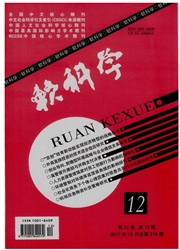

 中文摘要:
中文摘要:
构建基于消费者策略行为的供应链收益共享契约模型,研究集中式和分散式决策下,风险中性供应商和损失规避零售商的决策行为,探讨消费者策略行为强度、零售商损失规避度对供应链协调决策的影响。研究表明:零售商最优订购量是损失规避度和批发价与收益共享系数比的减函数,消费者策略性越强,产品的批发价格越低,零售商获得的利润分成越高;面对策略型消费者,当供应商为风险中性,零售商为损失规避时,收益共享契约能够实现供应链的协调和上下游间损失共担;当上下游企业的议价能力相当时,收益共享契约更易于实施。
 英文摘要:
英文摘要:
This paper proposes a revenue sharing contract model based on strategic consumer behavior, and analyzes decision behavior of risk neutral supplier, loss aversion retailer and strategic consumers in the centralized and decentralized supply chain. Also, it explores impacts of strategic consumer behavior and retailer's loss aversion on supply chain's coordination. Result finds that : the retailer's optimal order quantity decreases in his loss aversion and the ratio of wholesale price and rev- enue sharing parameter. The greater the intensity of strategic consumer behavior, the lower the wholesale price or the higher the retailer's revenue share;when supplier is risk neutral, retailer is loss aversion, and consumers are strategic, revenue sharing contract can achieve coordination and the loss sharing between supply chain members;when upstream and down- stream enterprises have similar bargaining power, the revenue sharing contract is easier to implement.
 同期刊论文项目
同期刊论文项目
 同项目期刊论文
同项目期刊论文
 期刊信息
期刊信息
